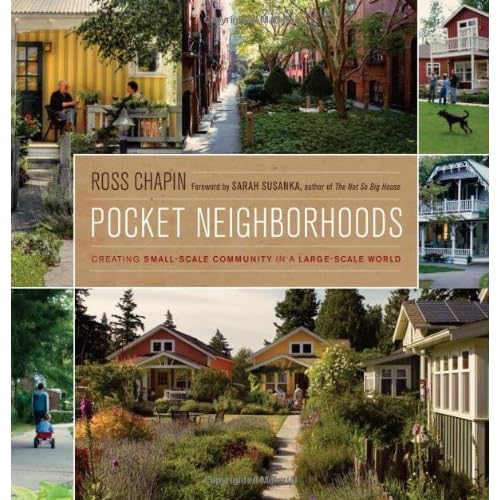
A “pocket neighborhood”, that’s what! (a WARNING to all
you English-language purists out there: this
text was written in American English, so I don’t want to hear – or, in this
case, read – any wisecracks about my atrocious spelling, understood? Good, now
let’s get started):
A “pocket neighborhood” is a relatively new concept of
housing currently spreading all over these United States of America, and
gaining popularity in the process. The reason behind the proliferation of this
new neighborhood concept is two-fold:
1 – As people live longer and healthier lives, pocket
neighborhoods offer a way of feeling connected to those whose families live far
away; to those with no family support system; and to those who are pure social
butterflies and, as such, dread the sound of silence and solitude. In short:
pocket neighborhoods provide social connectedness to those who seek it, i.e., a
sense of belonging and a means of fighting loneliness.
2 – The other factor is a safety issue; as one resident
so eloquently puts it, “few burglars want to mess with caring, sharp-eyed
neighbors.”
So how do these “pocket neighborhoods” work? For
starters, they’re called “pockets” because they are no more than enclaves in
current-traditional neighborhoods. Aimed at those looking for alternatives to
the current suburban model, they found a niche among those of “a certain age”:
50 to 60 year old boomers in search of smaller community-oriented living environments.
These “enclaves” do not have a street separating the homes that face one
another; they do not have big fenced-in backyards where people hide in search
of privacy; and they do not have attached garages where drivers disappear into
until it’s time to hop back into the car again. What they do have are
landscaped courtyards separating the
home across the street with a common walkway connecting front doors; they have
shared pedestrian gardens, yards, alleys and mailboxes; small backyards with the
focus on the front; and mostly detached garages or a common parking area which
deemphasize the current automobile mentality so prevalent since the 1950s. All
this in an effort to form (and build) ever-lasting relationships with
neighbors.
Obviously this is not for everyone; one resident said it
best when she referred to the stream of neighbors crossing her way as “the
parade of gawkers” – but it certainly
has its merits and there’s certainly a niche for it, as the popularity of such
a concept attests. Which begs the
question: seria este um conceito viável em Portugal?
Sem comentários:
Enviar um comentário